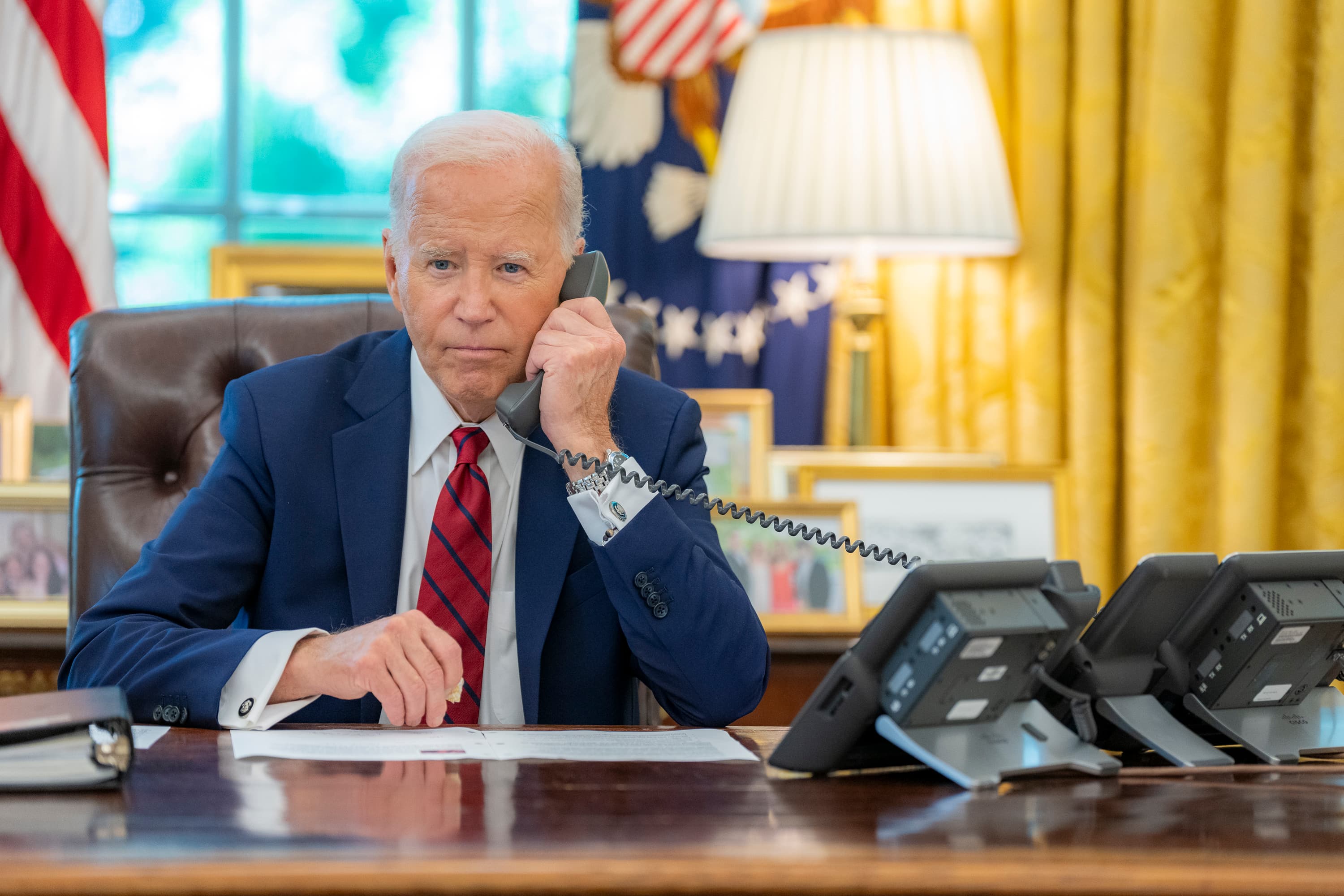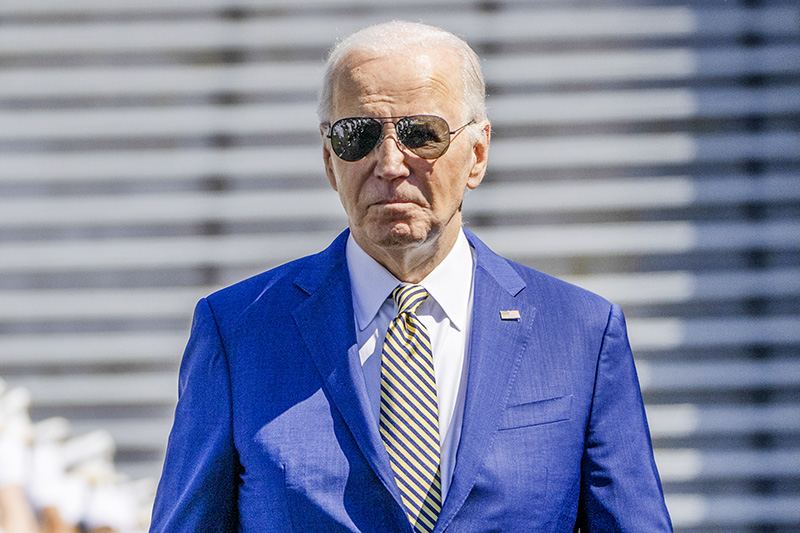Sean Patrick Maloney, openly gay Congressman, wants to be Democrats’ elections “quarterback” in 2022
Swing-district congressman hopes to chair Democratic Congressional Campaign Committee heading into midterms

“I think we have become a country where it’s very hard for anyone to understand that there are people who don’t already agree with them,” says U.S. Rep. Sean Patrick Maloney (D-N.Y.). “We, as Democrats, might be as guilty of this as anyone, because we bathe in our confirmation bias every night on MSNBC. And we live in places where everybody seems to share the same views.
“If I have a different perspective, it’s because I am under no illusion that I represent a lot of people who have a very different narrative and who have a very different view of a lot of things and who get their news somewhere else, not from those progressive sources,” adds Maloney, an openly gay married man who with three children who has been able to win election to Congress five times in New York’s 18th Congressional District, a swing district just north of the city, where President Trump beat Democratic presidential nominee Hillary Clinton in 2016.
“If I’ve been successful, it’s because I’ve built a relationship with those voters on a large number of issues we can still nonetheless agree on. Things like good infrastructure and veterans’ issues and health care and just doing good work in the community when people come for help,” he says, pointing to his status as a member of the House Permanent Select Committee on Intelligence, the House Transportation and Infrastructure Committee, and the House Agriculture Committee.
“My philosophy is that Democrats need to work on our relationship with the voters who don’t already agree with us, and that is partly about issues, but it’s also about showing up and caring about other people’s priorities as much as we care about our own.”
It’s that awareness of diversity of opinion, and his ability to win in a swing district, that Maloney is touting as he seeks the chairmanship of the Democratic Congressional Campaign Committee, the campaign arm of U.S. House Democrats, for the 2022 election cycle. The position is a crucial one, part-fundraiser, part-organizer, and part-cheerleader, with responsibilities that include recruiting candidates, raising money for vulnerable incumbents and any challengers who may be able to knock off weaker Republicans, and offering advice and assistance to Democratic candidates.
Following a 2020 cycle in which congressional Democrats significantly underperformed expectations, despite fellow Democrat Joe Biden besting President Donald Trump, some in the party are panicking that, without significant changes, Democrats are on track to lose their House majority in 2022, when, typically, the party in the White House often suffers the loss of seats in Congress.
Maloney hopes to calm those fears, providing stable leadership that will be able to address any of the party’s weaknesses and ensure that Democrats are in the best position, financially and strategically, to retain their control over the lower chamber.
Maloney’s chief rival for the DCCC chairmanship is Rep. Tony Cárdenas (D-Calif.), who previously ran the Congressional Hispanic Caucus’s campaign arm, BOLD PAC. Cárdenas may be appealing to some within the Democratic caucus because of his fundraising prowess and because they believe he will help the party prioritize engaging with Latino voters, particularly following the underperformance of both the Biden-Harris campaign and congressional Democrats in some heavily Latino areas, such as Florida’s Miami-Dade County and Texas’s Rio Grande Valley.
“It’s a critical position as we develop our battle plan for holding the majority and retaining the ability to support the new president and accomplish our goals,” Maloney says. “It is the quarterback of the whole effort. And I’ve got the experience and the qualifications to do it, because I’ve led the after-action process following 2016, when we were at a similar crossroads and helped architect the battle plan that worked so well in 2018. And that’s what we need to do again.”
The election for the DCCC post is scheduled for the week of Nov. 30.
See also: Gay congressman loses bid for Assistant Speaker in Democratic House leadership elections
The post-election analysis to which Maloney is referring was the so-called “Deep Dive,” in which Maloney examined problems with Democrats’ polling and voter modeling, and the party’s failure to adjust to larger trends, such as the ongoing political realignment in which rural voters and voters without college degrees are increasingly identifying as, and voting for, Republicans while college-educated voters are shifting more Democratic.
“In 2016, we saw that Hillary was doing better than we thought in traditionally Republican suburbs. And yet the DCCC failed to see that opportunity in time to take advantage of it. Many of those Hillary-won districts in ’16 didn’t even have a good Democratic candidate in the cycle,” notes Maloney. “And conversely, we were too slow to recognize how much harder it had become for our candidates in places where we used to win easily, particularly where there were large numbers of high school-educated and rural voters. And by adjusting how we understood the battlefield, we saw a bunch of new opportunities and we won a net gain of 40 seats in 2018.”
Maloney does not promise easy solutions, or a one-size-fits-all strategy that will guarantee Democratic future successes. Rather, his pitch to his fellow Democrats is that he will employ a data-driven approach to understanding where Democrats fell short in 2020.
“Four years ago, we interviewed 200 people: members of Congress, candidates, consultants, pollsters, and drew conclusions out of that,” Maloney says. “We need to have a similar process this time, and I can do it, because I’ve already done it.”
See also: Mondaire Jones, history-making gay congressman, elected House freshman leader
Maloney says that many Democrats, from both the conservative and progressive wings for the party, have attempted to offer their own solutions for how Democrats can do better electorally, but have not offered data to back up their claims.
“The most intelligent answer is I don’t know what went wrong, but I know how to find out,” says Maloney. “And the answer is going to depend on where we’re talking about. They key may very well be one answer in Staten Island, and another in southern Florida. … These are things we can figure out, but we have to do the hard work, and what is dangerous right now is to substitute opinion for analysis. It’s not my job to speculate. My job is to figure this stuff out and get a battle plan that works, and that’s gonna take some time. As I like to say, ‘if you’re not God, bring data,’ and I’m going to go look.”
Maloney previously served as a senior White House staffer under President Bill Clinton and as First Deputy Secretary to New York Governors Eliot Spitzer and David Patterson, jobs that give him experience overseeing 13 state agencies and departments. He also started his own business after leaving the White House post, which allowed him to develop additional managerial skills that would come in handy if selected to chair the DCCC.
“There will be new opportunities and new challenges as we move out of the Trump era,” he says. “But we need to understand those opportunities and challenges in time to do us some good, because we don’t have any margin for error in 2022.”
Read more:
John Aravosis is driven by a desire for change — and he’s not stopping post-Trump
President-elect Biden taps gay man as White House Social Secretary
Only 14% of LGBTQ voters supported Trump, post-election poll finds
Support Metro Weekly’s Journalism
These are challenging times for news organizations. And yet it’s crucial we stay active and provide vital resources and information to both our local readers and the world. So won’t you please take a moment and consider supporting Metro Weekly with a membership? For as little as $5 a month, you can help ensure Metro Weekly magazine and MetroWeekly.com remain free, viable resources as we provide the best, most diverse, culturally-resonant LGBTQ coverage in both the D.C. region and around the world. Memberships come with exclusive perks and discounts, your own personal digital delivery of each week’s magazine (and an archive), access to our Member's Lounge when it launches this fall, and exclusive members-only items like Metro Weekly Membership Mugs and Tote Bags! Check out all our membership levels here and please join us today!

























You must be logged in to post a comment.